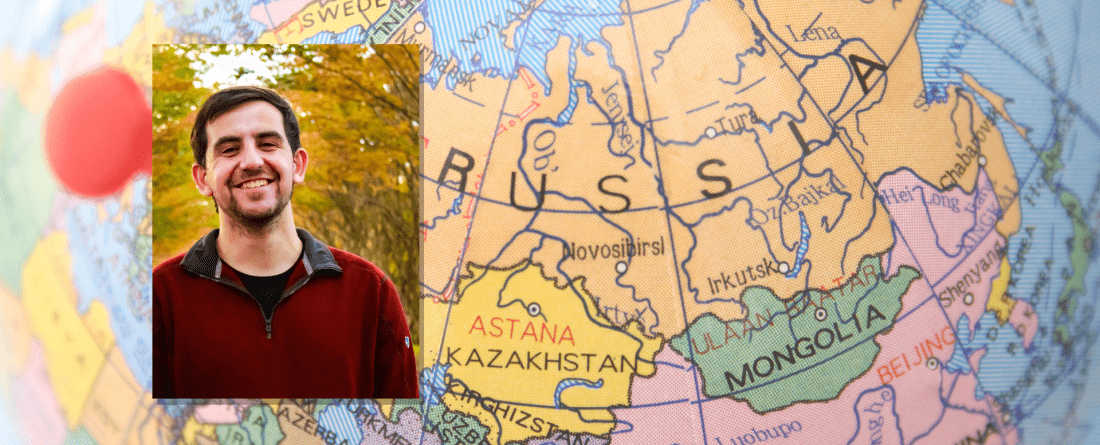
Micah Pickus couldn’t have picked an internship more relevant to his interests and the state of the world today. His enthusiasm for research related to Russia led him to seek an internship position with the Institute for the Study of War’s (ISW) Russia team for the summer. He received funding through the William Donald Schaefer Internship Program, which provides SPP students with financial support for unpaid internships in nonprofit, community and government organizations.
Pickus spent his summer in Washington D.C. researching and staying up to date on Russia’s ongoing invasion of Ukraine. The ISW’s daily updates have become required reading for anyone closely following the conflict, which meant that Pickus’s internship was extremely fast paced, as he worked to stay on top of and share new developments.
According to Pickus, “Part of what makes ISW’s analytical products so unique is that no classified sources are being used in the production and formulation of reporting or analysis - everything is available via open-source research.”
Open-source research refers to any publicly available information, including social media, news publications, published works and beyond. Pickus learned a great deal about what constitutes effective open-source collection and analysis, including a myriad number of rules and nuances to be aware of. For instance, Pickus learned to include caveats in his nominations, as he’d often cite something from a pro-Russian source.
Pickus explained that “... given the amount of disinformation that Russia is responsible for, it was important to distinguish between presenting something as fact versus a claim made by a questionable source.”
One other project Pickus contributed to was revising ISW’s May 2022 publication of a Guide to the General Officers of the Russian Military. Pickus utilized open-source information to verify whether or not certain Russian officers, many of whom are involved in the Ukraine conflict, still retained their positions since the guide’s publication in the spring.
While Pickus was based on the Russia team, that did not prevent him from collaborating with other regional portfolios within ISW. In fact, the cooperation between different regional portfolios was extremely beneficial, evident in two interactions with the ISW’s Middle East team. In the first instance, Pickus was able to provide the Middle East team with a statement from a Russian general based in Syria that confirmed the previously unidentified perpetrators of a recent missile attack in the region. And in the second, the Middle East team was able to verify through Arabic-language articles that a particular Russian general had been reassigned to the region as the senior commander of Russian forces in Syria after Russian and English media coverage stopped reporting on him.
Ultimately, Pickus found the internship to be an extremely meaningful experience that reaffirmed his desire to explore a career in Russian-language open-source analysis. Said Pickus, “These experiences really underscored the importance of thinking outside the box in this line of work and the value of effective collaboration, as well as challenged me by providing me with opportunities to showcase my abilities to work independently and as part of a team.”
